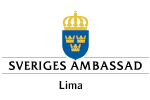
In the forests of India, something exciting is going on. Villagers are regaining property taken from them when the British colonial authorities nationalized their forests. Just as exciting, in urban Kenya and elsewhere, people are doing away with the need for banks by exchanging and saving their money digitally. All over the world, poor people are discovering the blessings of bottom-up capitalism.
Next month, the United Nations will formally announce the successors to its Millennium Development Goals, the global body’s approach to poverty alleviation since the year 2000. These new goals will be touted as “sustainable.” The event will coincide with a visit by the pope, at which he is expected to concentrate on climate change and materialism as the greatest threats to the welfare of the people of the developing world.
In many countries, people could possess access to capital by virtue of the real estate they already occupy, but they are unable to prove ownership of the land due to inadequate land-titling systems or because of traditional forms of property ownership where everything belongs to the village chief. As Hernando de Soto explained in his book, The Mystery of Capital, land-titling reforms significantly benefit the poor, enabling such opportunities as access to credit, the establishment of systems of identification, the creation of systems for credit and insurance information, the provision for housing and infrastructure, the issue of shares, the mortgage of property and a host of other economic activities that drive a modern market economy.
To read the complete article, please visit Foundation for Economic Education


